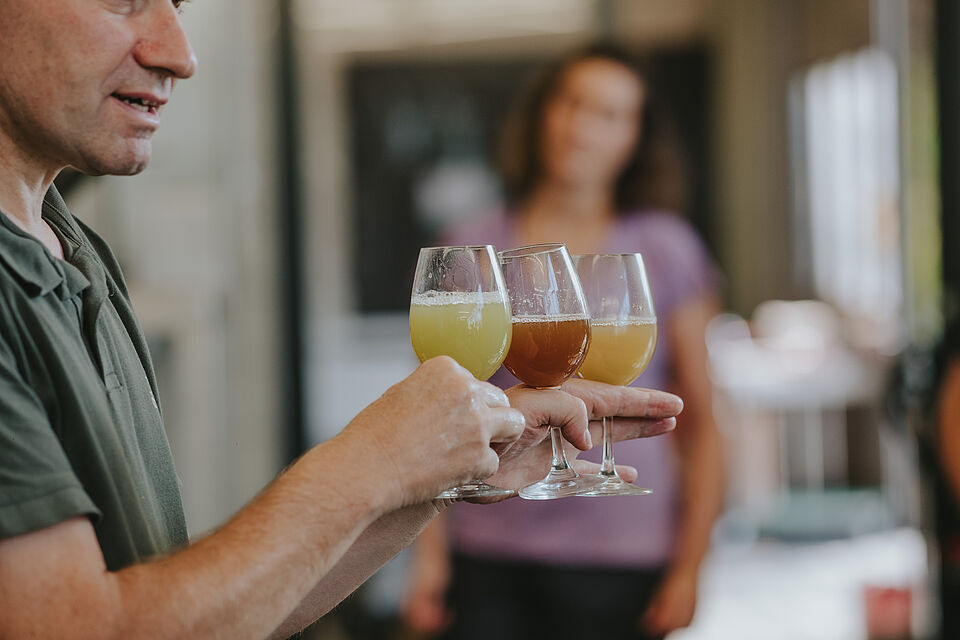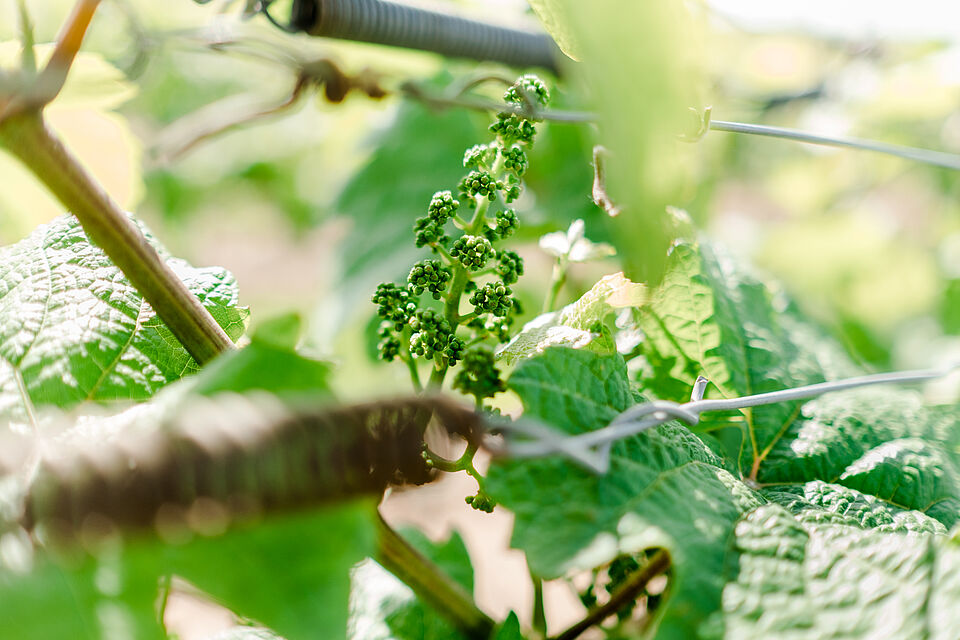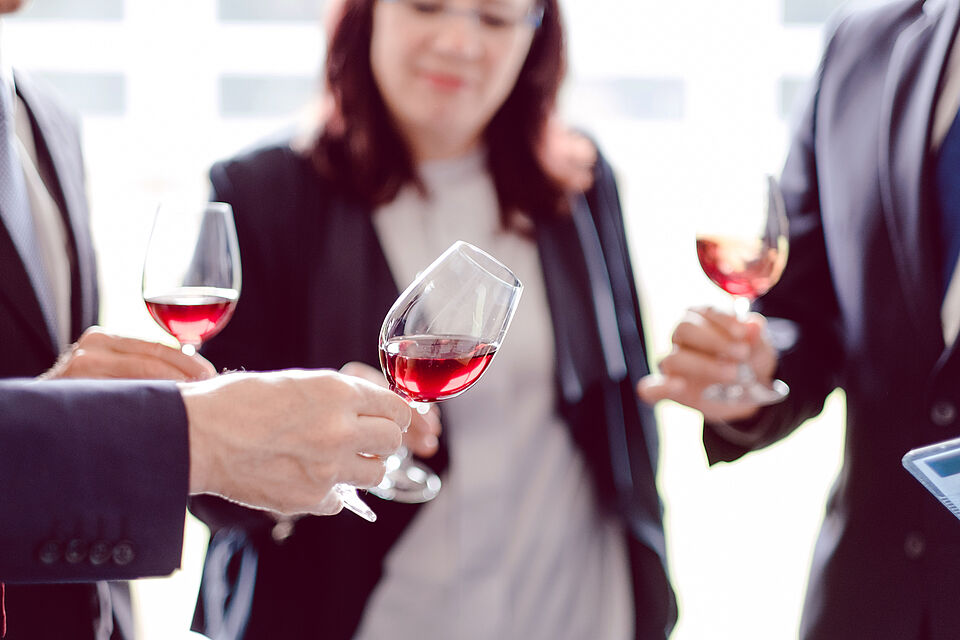Targeted vinification for the sensory improvement of non-alcoholic wines and sparkling wines
The research project aims to improve the quality of non-alcoholic wines in order to meet the increasing demand for sophisticated non-alcoholic beverages. The technologies used, vacuum distillation and a combination of reverse osmosis and osmotic distillation, show deficits in some areas and can lead to a loss of wine flavors that create identity. The project, led by Prof. Dr. Ulrich Fischer, aims to improve wine quality by optimizing grape processing and winemaking before and after dealcoholization. Lisa Käppler is writing her doctoral thesis as part of the project and is working on the sensory and aroma-chemical analysis of dealcoholized wines.
Sensory and material characterization of climate-induced off-notes in white wine and minimization of sunburn damage in grapes through the use of clays and shading
Climate change is affecting viticulture in many ways: grapes are ripening up to four weeks earlier due to rising temperatures. International grape varieties are benefiting, while indigenous varieties such as Riesling are increasingly showing the "petrol note" aroma defect. The research project is investigating the material causes of sensory off-notes in white wine and developing a viticultural minimization strategy to reduce sunburn damage. Under the direction of Prof. Dr. Ulrich Fischer, the project is led by PhD student Caterina Szmania.
Identification and technological enrichment of bioactive ingredients in non-alcoholic wines and sparkling wines
Due to its annual consumption of 10.6 liters of pure alcohol, Germany is one of the high-consumption countries and is above the average for OECD countries. The WHO recommends measures to reduce alcohol consumption such as pricing, availability and advertising. Non-alcoholic wines can be a solution to reduce consumption and offer alternatives without harmful alcohol intake. As part of a research project, the beneficial health effects of alcohol-free wines are to be investigated. The focus is on phenolic compounds that can have antioxidant, anti-inflammatory, anti-cancer and blood sugar-lowering effects. The aim is to produce wines with high levels of bioactive wine ingredients in order to avoid harmful alcohol intake. Katrin Oster is conducting research on this topic at the Rural Area Service Center (DLR) Rhenish Palatinate under the direction of Prof. Dr. Ulrich Fischer.
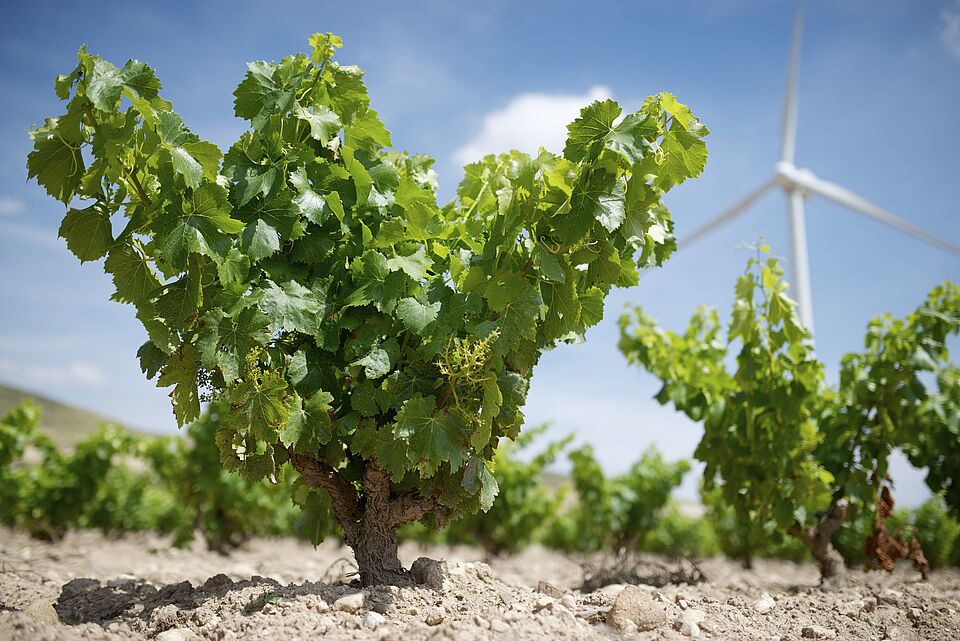
EIP-AGRI - A sustainability concept for Baden-Württemberg
Politicians and society are increasingly calling for strategies to tackle the consequences of climate change. The adopted European Green Deal specifies measures to make an active contribution to maintaining agricultural supplies by reducing the use of pesticides, increasing organic farming and improving economic efficiency.
Following on from this, the aim of this project is to develop a holistic sustainability concept for the wine industry in Baden-Württemberg in the areas of viticulture, oenology and marketing. Particular attention is paid to new grape varieties (PIWIs).
Period: October 2021 - December 2024
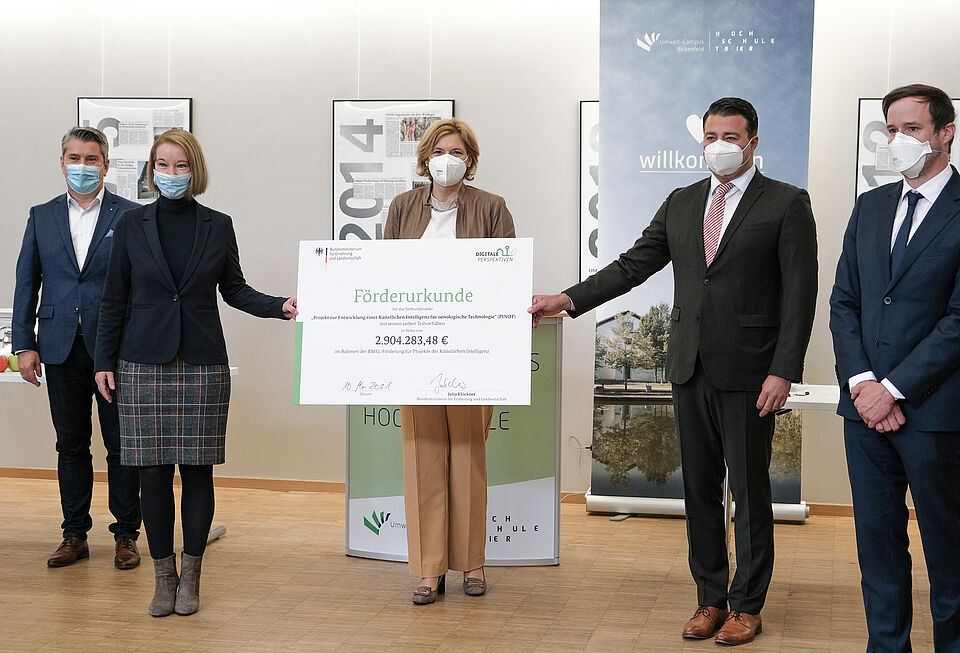
PINOT
Projectto develop artificial intelligencefor Enology and technology in viticulture
The PINOT project is researching the use of artificial noses to analyze the quality of wine. The aim is to support winemakers, cellar masters and wine merchants in recording important data about their wines. The artificial nose is a new type of analysis system that can be used to record aroma signals in a matter of seconds. Developments in recent years mean that relatively simple methods will in future go far beyond what is currently known in sensor technology. For quality assurance, traceability, sustainability and ensuring the authenticity of wine, it will become increasingly important to link information from producers with quality-relevant wine aroma data. The aim is to reflect human sensory impressions such as taste, aroma and appearance as accurately as possible.
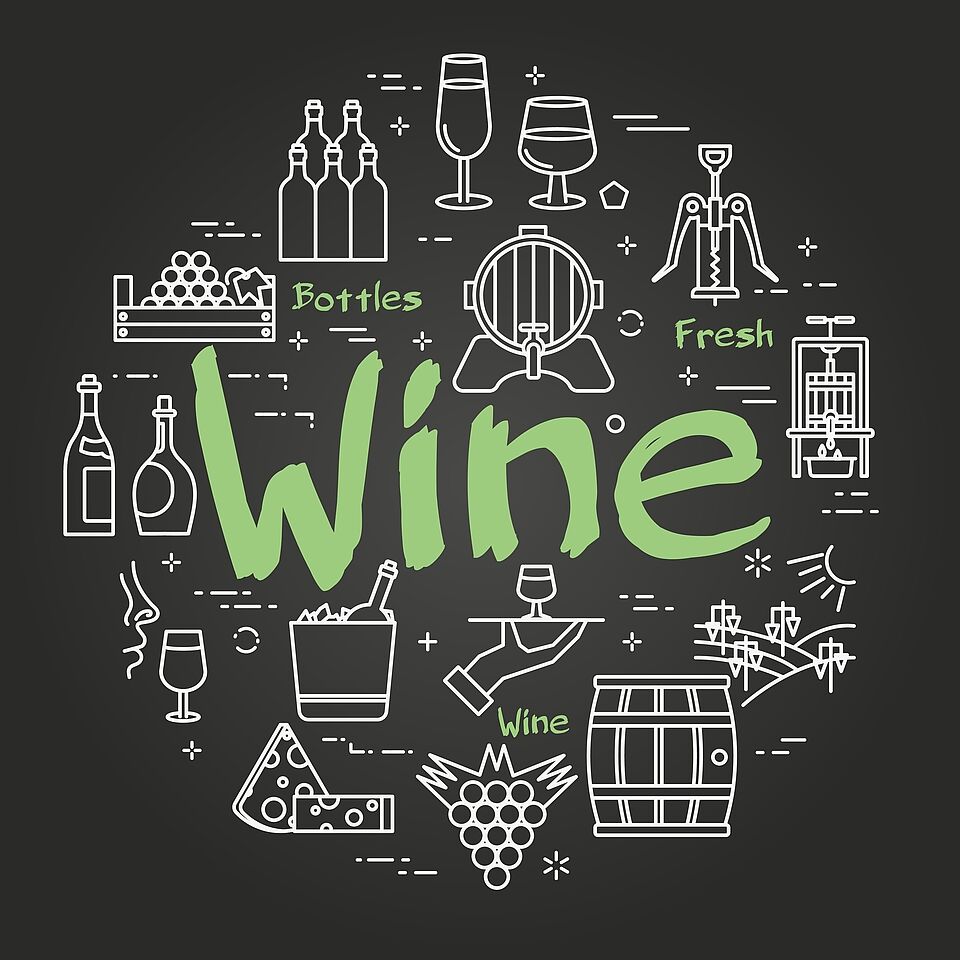
SmartGrape
New measuring system for determining the quality of grapes
The aim of SmartGrape is to develop and establish a measuring system in the mid-infrared range (MIR) for grapes. The known measurement system uses a novel calibration procedure based on artificial intelligence (AI) methods. Hundreds of signals of quality-determining grape constituents are placed in the quality context of the wine product.
The AI-based measurement method will be used to analyze the quality and authenticity of grapes, but also to record quality changes across vintages in order to record the effects of climate change. The research project focuses on determining the correlation between the influence of the vineyard location (terroir), the composition of grapes and the quality of wines.
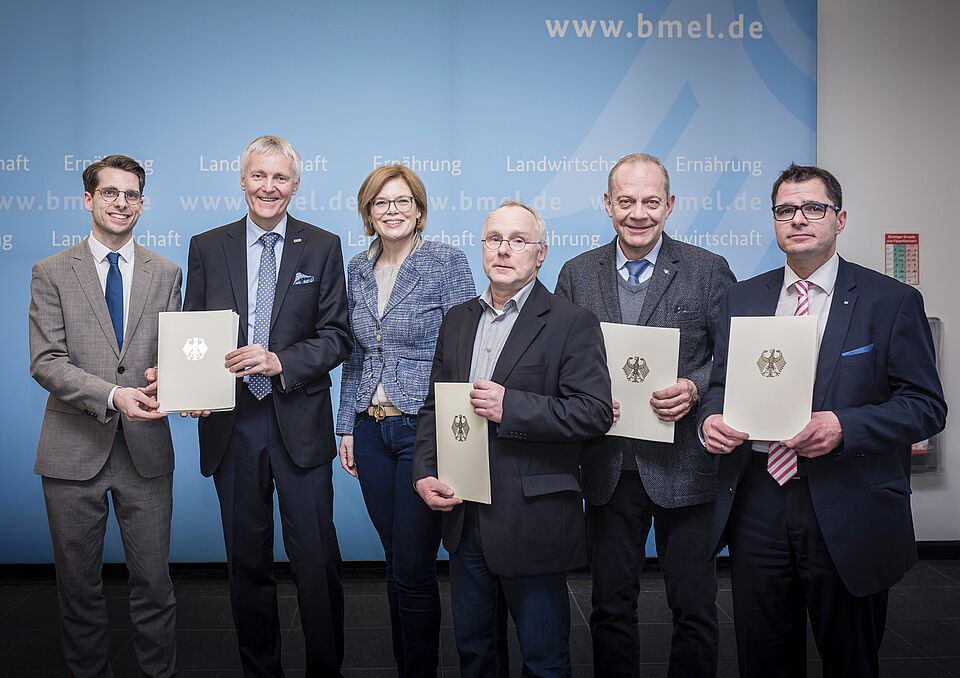
Digital Experimental Field Southwest
Agriculture and specialty crops develop comprehensive digital solutions
Industry and agriculture have already largely implemented digitalization to increase efficiency and optimise service provision. Digitalization can also offer potential solutions for viticulture if the operational requirements are taken into account and the digital infrastructure is tailored to suit. The Digital Experimentation Field Southwest in Rhineland-Palatinate is working on this and developing a cross-sector and cross-company data management system. Three of a total of nine digitalization projects are being implemented at the Wine Campus Neustadt.
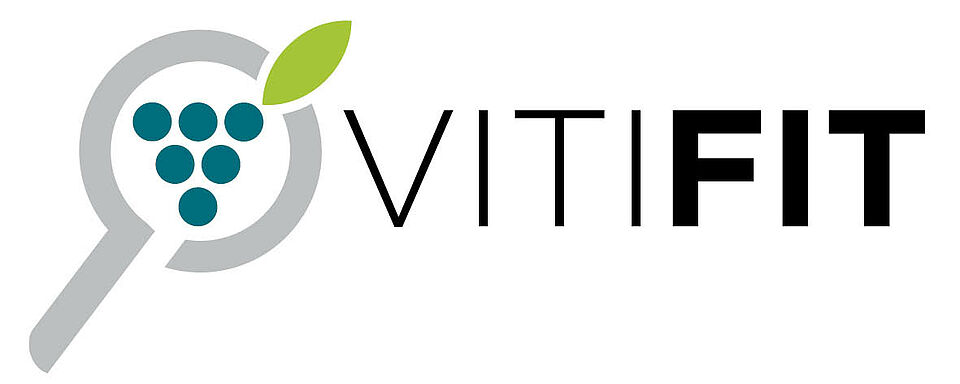
VitiFIT - Healthy vines in organic viticulture
In viticulture, the massive occurrence of downy mildew can lead to considerable, sometimes existentially threatening yield losses or quality losses for organic wineries. In organic viticulture, copper-containing plant protection products are currently the only effective and approved option for combating grapevine peronospora. Other preparations permitted under current EU law have not yet shown sufficient effectiveness. As no alternative, biological plant protection products are yet available that could replace copper, the aims of the project are to develop and test combined, holistic plant protection strategies for the sustainable and environmentally friendly control of downy mildew on grapevines while simultaneously reducing the use of copper in organic viticulture.
Period: August 2019 to July 2024

